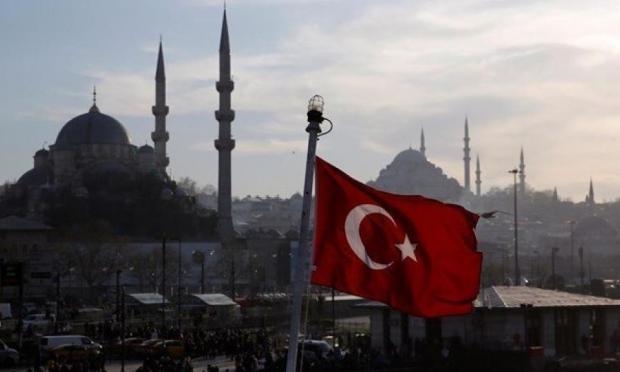Turkey gives special emphasis for 2024 to what is happening in the Middle East and Ukraine. Greece does not seem to be of much concern to the think tanks in the neighboring country as, as we have already revealed in Pentapostigma, a study by SETA speaks of increasing cooperation between Athens and Ankara on the issue of hydrocarbons in the Eastern Mediterranean
The analysis by foreign policy researcher Jan Ajun at Turkey's largest think tank, SETA, reads as follows: "We have entered 2024 but unfortunately the problems and conflicts in our region have been going on since 2023. While the Russia-Ukraine war is escalating, Israel's occupation and massacres in Gaza continue. On the one hand, the Houthi closure of the Bab el-Mandeb Straits and the Red Sea and US attempts at intervention are likely to continue from where we left them. In Sudan, the civil war is becoming increasingly intense. In the early days of 2023 a year in which regional normalization and diplomacy would come to the fore with a win-win approach was foreseen, now we face a much more pessimistic picture.
On the first day of 2024, the Middle East was once again turned into a bloodbath. Israel's occupation operation and the massacres in Gaza continue unabated. 22 thousand people have died and hundreds more are killed every day. Western countries continue to support Israel, although they are grumbling. Israeli officials have started making statements to the world about how the evacuation of Gaza should be done. Hamas and other Palestinian resistance organizations continue to resist despite the huge power asymmetry they face. Israel, on the other hand, is clearly taking reckless steps to expand the war. The National Intelligence Organization (MİT) has carried out extensive operations that have dealt a significant blow to MOSSAD's activities and spy network in Turkey. The Israeli Air Force did not hesitate to kill one of Hamas' important figures by bombing Beirut for the first time since 2006.Similarly, on 3 January, bombs exploded one after the other in Iran during the Qassem Suleymani celebrations where almost a hundred people died. Israel had also targeted and killed an important Iranian general in Syria. This method of action clearly regionalizes Israel's war and forces the US and other western countries to intervene militarily against Iran. Iran, on the other hand, still does not seem to have made any serious response beyond the Houthi efforts to close the Bab el-Mandeb Strait and the Red Sea. It remains to be seen whether Hezbollah will update its current limited military involvement in the north after recent events, but it seems that the Israeli-Palestinian conflict is likely to expand, albeit gradually.
Another front in the Middle East is in Sudan. Unfortunately, there is a civil war that has caused thousands of civilians to lose their lives and it seems that some countries, especially the UAE, are adding fuel to the fire. In the north, the conflicts between Russia and Ukraine have escalated again. In particular, Russia is looking to exploit the process regarding the reluctance of Western countries to support Ukraine. The blocking of aid to Ukraine by the US Congress and the inability of Western countries to effectively support Ukraine with their current defense production has begun to shift the balance in Russia's favor. Of course, the prominence of the Gaza issue has overshadowed support for Ukraine. The moment of decision is approaching for the West, either they will increase their support to a more substantial level and counterbalance Russian aggression, or Russia will shape the playing field in their favor and begin to corner Ukraine. The major areas of conflict from 2023 still exist, the likelihood of existing conflicts in both the North and the Middle East escalating into regional conflicts is increasing. Unfortunately it does not seem feasible to say optimistic things about 2024 at this point."



